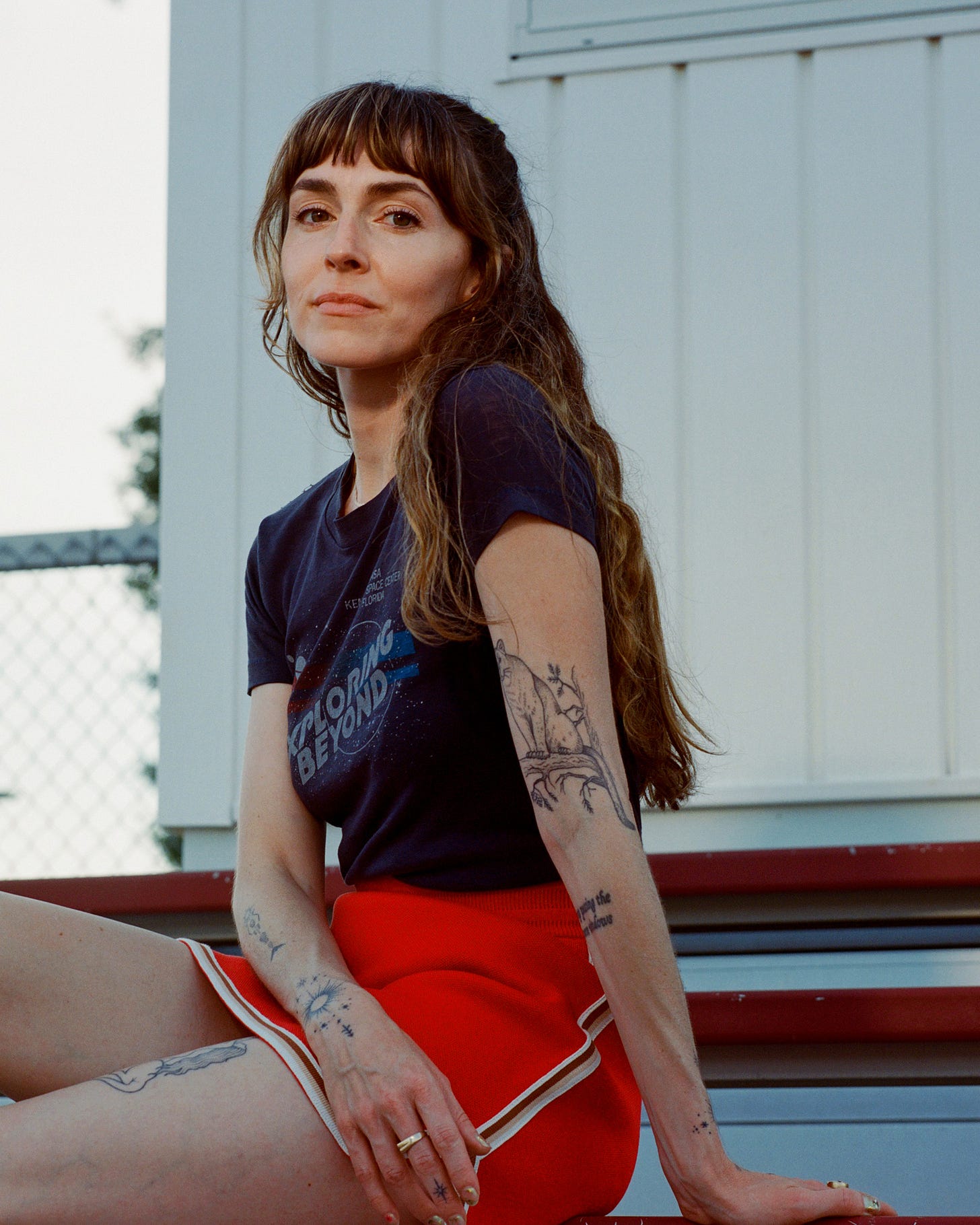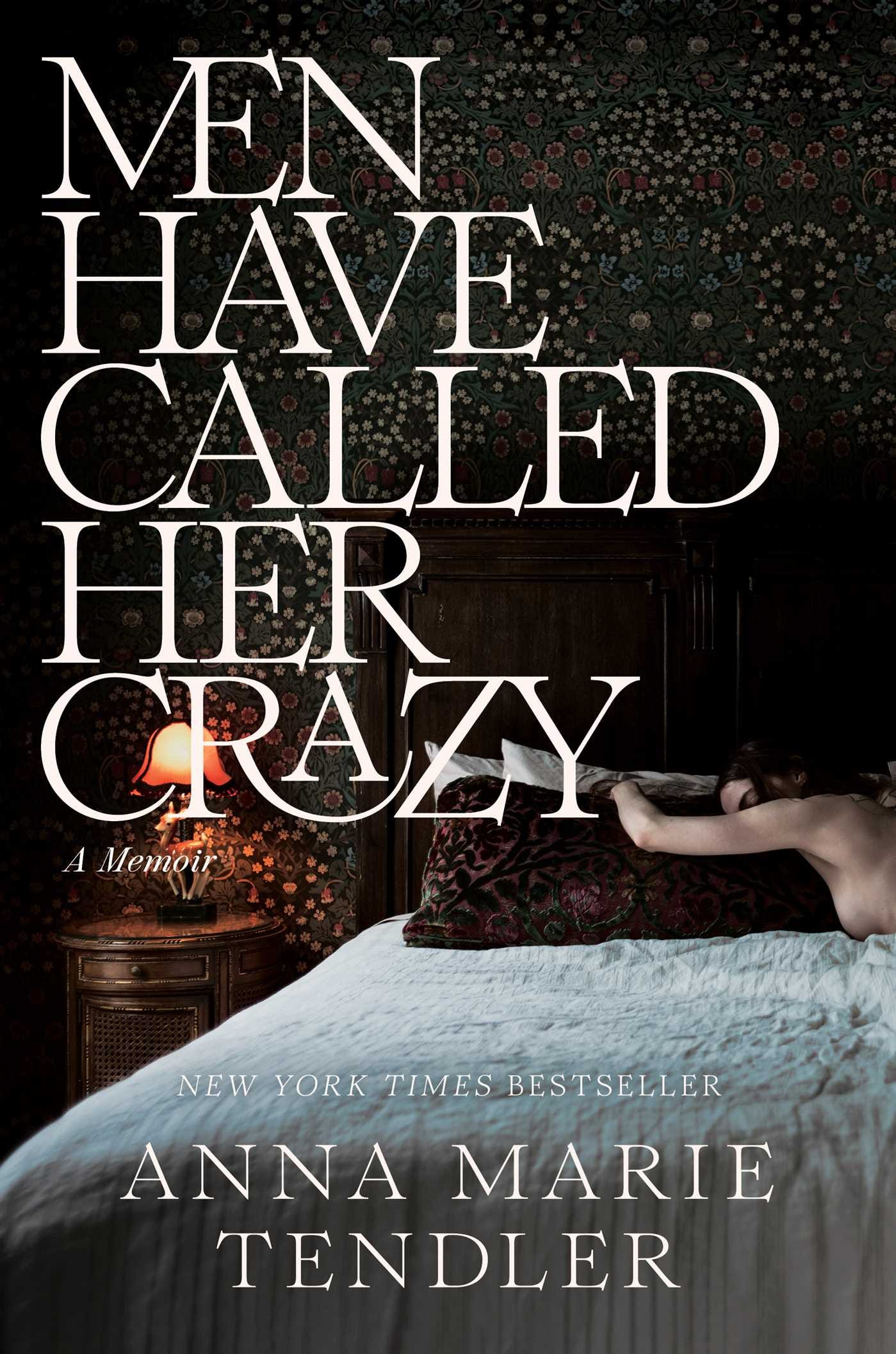The Memoir Land Author Questionnaire #60: Anna Marie Tendler
"The process is scary and intimidating for everyone who does it. As soon as you realize this, mentally you will be on an equal playing field. Now all you need is follow-through."
Since 2010, in various publications, I’ve interviewed authors—mostly memoirists—about aspects of writing and publishing. Initially I did this for my own edification, as someone who was struggling to find the courage and support to write and publish my memoir. I’m still curious about other authors’ experiences, and I know many of you are, too. So, inspired by the popularity of The Oldster Magazine Questionnaire, I’ve launched The Memoir Land Author Questionnaire.
Here’s the 60th installment, featuring Anna Marie Tendler (), author of Men Have Called Her Crazy: A Memoir. -Sari Botton

Anna Marie Tendler is a writer and visual artist. Her memoir, Men Have Called Her Crazy, debuted at #2 on the New York Times Best Seller list and was met with praise from The New York Times, The Atlantic, W Magazine, TIME, Kirkus Reviews, Publishers Weekly, and NPR. Tendler’s artistic journey spans textiles, photography, drawing, painting, and interior design. Her debut photo series Rooms in the First House, which has been exhibited across the country to wide acclaim, chronicles the nonlinear experience of loss, anger, powerlessness, and the reclamation of identity that so often characterizes womanhood. She holds an M.A. in fashion and textile history from NYU’s Costume Studies program and lives in the woods with her three cats Chimney, Moon, and Butter. You can stay connected with Anna on Instagram @annamtendler and through her substack COVEN (by Anna Marie Tendler).
—
How old are you, and for how long have you been writing?
I am 39 years old and have been writing for as long as I can remember.
What’s the title of your latest book, and when was it published?
My latest book, Men Have Called Her Crazy, was published on August 13th, 2024.
What number book is this for you?
Technically Men Have Called Her Crazy is my third book. Before it I wrote a how-to makeup book and a how-to hair styling book. Men Have Called Her Crazy is my first long-form narrative work.
How do you categorize your book—as a memoir, memoir-in-essays, essay collection, creative nonfiction, graphic memoir, autofiction—and why?
I see my book as a memoir because it tells a specific story and moves through time in a (mostly) linear fashion. Though there are two timelines which the book jumps back and forth from between chapters, both are linear.
What is the “elevator pitch” for your book?
Men Have Called Her Crazy is about my two week stay in a psychiatric facility in early 2021. Following two timelines, the book charts my mental health journey in present day, while also examining my difficult and often unequal relationships with men throughout my life.
I really felt the story I told was right there in my mind waiting for me to put it on the page. The most difficult part for me was figuring out the book’s structure. I had an idea that I wanted it to move between two timelines but I wasn’t sure it would work until I was about halfway through writing.
What’s the back story of this book including your origin story as a writer? How did you become a writer, and how did this book come to be?
Men Have Called Her Crazy was originally conceptualized and pitched as a photo book of my Rooms In The First House series with personal essays interspersed throughout. My last pitch meeting was with Sean Manning, an editor (now the Publisher) at Simon & Schuster who I hadn’t sent my proposal to, but who got a hold of it and requested a meeting with me through my agent Meg Thompson. When we got on the call he said to me, “You’re a writer. The worst thing you can do for your writing is to put it in between photographs where no one will read it.” I considered this for a couple of days, weighing whether I wanted to open my life up in the way that is required for memoir. Obviously, I took the leap.
What were the hardest aspects of writing this book and getting it published?
I was very lucky to sell my book on proposal which made the publishing part of it easier. I was also lucky to have not found the process of writing it laborious. I really felt the story I told was right there in my mind waiting for me to put it on the page. The most difficult part for me was figuring out the book’s structure. I had an idea that I wanted it to move between two timelines but I wasn’t sure it would work until I was about halfway through writing.
How did you handle writing about real people in your life? Did you use real or changed names and identifying details? Did you run passages or the whole book by people who appear in the narrative? Did you make changes they requested?
I took special care writing about other people, especially the other women with whom I was in the hospital. It was important not to tell their personal stories or to divulge information about them that was not mine to share. To do this I kept the focus completely through my lens – I told stories about the things we did together and how I experienced them, but did not include any biographical information about them or give reasons for why they were in the hospital. I also altered identifying details.
I changed everyone’s name except those of my three best girlfriends. Even with them, I only used first names and I asked permission first.
I do believe it's important to consider any fallout that might occur from writing a personal story and if that fallout feels worth it to you. The answer to that question will vary from person to person. There’s no correct answer, it just has to feel right to you, the author. When I had finished writing Men Have Called Her Crazy I felt confident about how I had portrayed other people in my life. I made sure anyone who could be upset by their portrayal was completely unidentifiable.
I offered an early read to three of the men I wrote about, but all three declined, saying they trusted however I decided to write about our interactions. Their trust was something I truly appreciated.
Who is another writer you took inspiration from in producing this book? Was it a specific book, or their whole body of work? (Can be more than one writer or book.)
I purposefully chose to not read other memoirs right before or during the writing of my book. I reread only one—Girl, Interrupted—as I wanted to refresh myself on how Susanna Kaysen handled writing the other women in the hospital.
A book I would recommend as enormously helpful to those writing memoir is Body Work by Melissa Febos.
Men Have Called Her Crazy is about my two week stay in a psychiatric facility in early 2021. Following two timelines, the book charts my mental health journey in present day, while also examining my difficult and often unequal relationships with men throughout my life.
What advice would you give to aspiring writers looking to publish a book like yours, who are maybe afraid, or intimidated by the process?
The process is scary and intimidating for everyone who does it. As soon as you realize this, mentally you will be on an equal playing field. Now all you need is follow-through.
What do you love about writing?
I love the way reading a story that in some way parallels our own can make us feel less alone.
What frustrates you about writing?
That sometimes a “good” writing day means only finishing a single paragraph.
What about writing surprises you?
When I remember that people I’ll never meet will read my work.
Does your writing practice involve any kind of routine or writing at specific times?
I write better in the early part of the day so I would try my hardest to start by 10am and end by 3 or 4pm. That said, learning how to be flexible and write when I had time to write was essential to getting the job done. For me, the only way I could have kept to a strict schedule would have been if there was another person running the more domestic and clerical aspects of my life, but that isn’t my reality. Many, many things broke in my house while I was writing my book. I would lose writing time to deal with those minor calamities, but decided early on I wasn’t going to feel bad when real life diverted me away from real work. I would just say, “Okay, today was not the day I thought it was going to be” and I’d try again tomorrow.
Men Have Called Her Crazy was originally conceptualized and pitched as a photo book of my Rooms In The First House series with personal essays interspersed throughout. My last pitch meeting was with Sean Manning, an editor (now the Publisher) at Simon & Schuster. When we got on the call he said to me, “You’re a writer. The worst thing you can do for your writing is to put it in between photographs where no one will read it.” I considered this for a couple of days, weighing whether I wanted to open my life up in the way that is required for memoir. Obviously, I took the leap.
Do you engage in any other creative pursuits, professionally or for fun? Are there non-writing activities do you consider to be “writing” or supportive of your process?
In addition to being a writer, I am also a visual artist. While writing my book I took various photography related jobs, however I did focus predominantly on writing. I was able to do this because I sold my book on proposal, which allowed me to live off my advance while I wrote. It was only necessary for me to take outside work to supplement the advance. Some people write their entire book first and then sell it, in which case working (creatively or non-creatively) to make an income while writing is essential. I think it’s important to note the financial reasons some people are able to “just” write. It doesn’t mean they are better at it, it just means the economics are allowing them to do so.
I cannot stress enough the importance of embracing non-writing activities that are also “writing.” For example, going for a walk and, my personal favorite, staring at a wall.
What’s next for you? Do you have another book planned, or in the works?
I am currently working on a very fun, very cool visual-based project that will come out in early 2025. While doing that, I am also writing a proposal for a work of fiction.






Love how Handler acknowledges this perennial problem: “I think it’s important to note the financial reasons some people are able to “just” write. It doesn’t mean they are better at it, it just means the economics are allowing them to do so.”
I really liked that when "other stuff" came up that interrupted your writing, you would "just say, 'Okay, today was not the day I thought it was going to be' and I’d try again tomorrow." For me, this was one of those weeks, so reading you "mirror" what I, too, had to say and do lifted my mood. Thanks for sharing this.